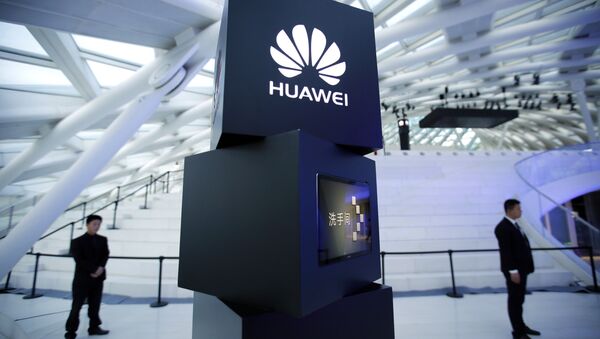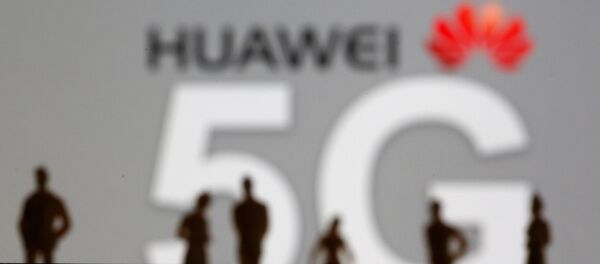The Philippines recently stated that there is no evidence that Huawei poses any threat to national security. It joins other Southeast Asian and Asia Pacific states that don't want to follow the lead of the US in banning the Chinese company from improving their mobile telecommunications networks.
Eliseo Rio, the Head of the country's Department of Information and Communications Technology, said during the Beijing "Belt and Road" forum that Huawei had been working in the Philippines to expand its telecommunications infrastructure for more than 10 years, and there have been no incidents that would threaten national security. Rio pointed out that some countries, including the Five Eyes members (the US, UK, Australia, New Zealand and Canada) had expressed some concerns, but almost all countries use Huawei equipment in their telecommunications infrastructure. Earlier, the Philippine network operator Globe Telecom announced that Huawei was its main supplier, and the company would continue using its equipment, including the equipment for the introduction of 5G.
Thailand doesn't want to give up Huawei either. The country is expected to deploy 5G networks there by 2020; the networks will rely on the Chinese company's hardware. Singapore, Malaysia, and Indonesia have also signed cooperation agreements with Huawei to test 5G technology. According to Huawei, next year the number of users of the company's equipment in Southeast Asia will reach 80 million, and the business volume will be $1.2 trillion.
5G, short for fifth generation mobile communication technology, offers the latest in high-speed wireless data transmission. This technology is billed as having the ability to significantly improve the quality of the Internet of Things: data transmission between different appliances and devices. So far, unified standards for 5G networks haven't yet been worked out, so countries are competing with each other. The first to develop a new standard can become a trend leader in the new network.
The United States is currently the undisputed leader in the development of mobile telephony; now is the first time it has encountered the real risk of falling behind. The first commercial 5G CPE client terminal has been developed by Huawei; a series of 5G base stations have been developed by ZTE. In three years, China has built 350,000 new base stations. For comparison's sake, the United States only built 30,000 new base stations in the same period of time.
READ MORE: Huawei Outspends Apple, Microsoft on Research and Development of 5G Network
This is not the first year that the United States has opposed Huawei. Washington argues that the company may cooperate with the Chinese government to collect intelligence with the help of the telecommunications equipment it sells. Huawei has repeatedly denied these allegations. However, the United States didn't completely reject Huawei before; it merely restricted the use of Huawei equipment in essential telecommunications infrastructure that serves government agencies.
Now there's a massive campaign against the Chinese manufacturer. The official US reason is that 5G technology can provide more opportunities for espionage. However, as Chen Fengying, Director of the Institute of World Economics of the China Institute of Contemporary International Relations, pointed out, the real reason is that the United States is doing everything it can to shield American companies from confrontation with strong competitors.
"5G is a business; the state has nothing to do with it. Ren Zhengfei, CEO of Huawei, has made it clear that Huawei has signed confidentiality agreements with its partners to ensure that the company won't provide the government with any information. The country's authorities have also clearly stated that they would not interfere in these matters. For example, we commonly use Microsoft software. Does the US government really have access to all our secrets? Therefore, the US behaviour is influenced by competition concerns, because the United States is not too strong in the 5G field. So when the technology is not that strong, the only thing they can rely on is political ferocity," he said.
Earlier this year, US Secretary of State Mike Pompeo went on a tour of countries that are allied with the US. His main task was to persuade the governments to abandon cooperation with Chinese telecommunications companies, including Huawei. Pompeo said that the United States would be forced to reduce intelligence and security cooperation with the countries that retain Chinese equipment in their own infrastructure. However, those warnings didn't even work for the Five Eyes members. Last week, British Prime Minister Theresa May approved the Chinese company Huawei to participate in the creation of 5G networks in the country. May's decision was based on the fact that, firstly, any discrimination against a particular company damages the competitive environment of the market. In addition, Huawei won't build the entire network but only certain components of it.
"Australia is a rather peculiar country because its independence is not high, so its policy is hard to grasp. Policy-wise, it always swings between Asia and the United States. According to statistics, Australia is more of an Asian country; whether it is regarding the Belt and Road initiative or the 5G issue, Australia should be closer to its Asian peers in the region. But because of the country's alliance with the United States, including the Five Eyes alliance and the political alliance, Australia feels that it belongs to the American camp, so it is more tilted toward the United States than Europe in terms of policy issues. It is because of Australia's lack of independence that its policy is hard to grasp. China invests in Australia quite a lot. China invests a lot in Australia's natural resources and agriculture. Ethnic Chinese purchase Australian real estate, which also helps Australia correct the balance of supply and demand to a certain extent. Due to the fact that the seasons in Australia and China don't coincide, many Chinese tourists love to come to Australia on holiday. Therefore, in general, we can say that in terms of the current production structure, Australia and Asia are interdependent, they are not competitors," the expert noted.
One thing is clear now — the US campaign to ban Huawei equipment throughout the world has been a failure. Huawei and ZTE have strengthened their position in the world's telecom products market, and it is almost impossible to exclude them from the supply chain. Huawei alone provides equipment in 170 countries around the world, and is the world's third largest smartphone manufacturer. In the EU, Huawei has the largest share of the mobile infrastructure market: 31%. The previous generation networks of most Asian countries and New Zealand work using the software of this Chinese company.
The expert pointed out that in this context, Australia should make a pragmatic choice. The current confrontation with China has affected economic relations. For example, Australia's coal supply to China has slowed down; China has replaced it with other suppliers, including products from Russia and Indonesia. Meanwhile, Australia's coal exports to China accounted for nearly 4% of the country's GDP. Chen Fengying emphasised that "Europe already considers its own sovereign interests when establishing economic relations with other countries, including China. Therefore, Australia's policy is likely to change in the near future."
*Views and opinions expressed in this article are those of the experts and do not necessarily reflect those of Sputnik.




